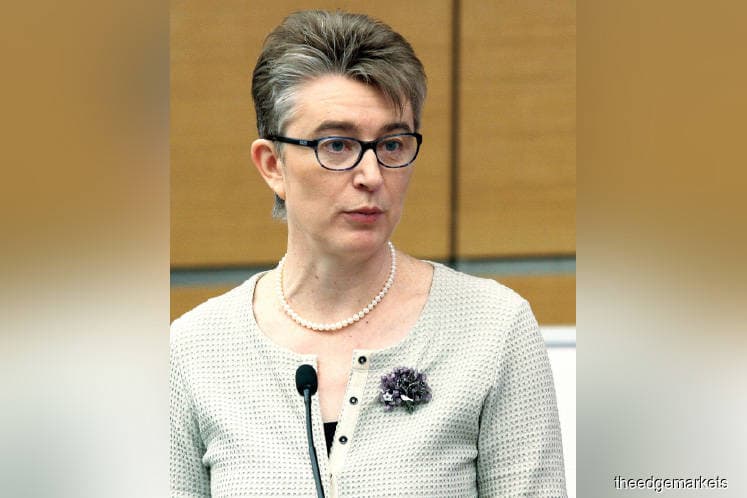
This article first appeared in The Edge Financial Daily on July 3, 2018
KUALA LUMPUR: The World Bank says the Malaysian government should reform the country’s broadband market to spur digital technology adoption, as it believes the country’s model of economic growth based on factor accumulation like capital or labour force that propelled it into the middle-income space is starting to see diminishing returns.
The call came after the bank found that slow Internet connection and the lack of affordable broadband plans are the two most significant constraints on digital technology adoption in Malaysia, with only 62% of business establishments connected to the Internet and only 28% having some form of web presence.
Its findings in its report — the Malaysia Economic Monitor — that was launched yesterday, also highlighted that the country needs to improve digital adoption by businesses to achieve higher levels of productivity and to drive digital transformation. It said Malaysia should consider adopting policies to improve the quality and affordability of fixed broadband services, aas well as increasing ultra-fast broadband network coverage.
“The government should strive to increase the level of competition in the fixed broadband market by better enforcing the current regulatory framework to provide all operators with access to cable landing stations and by opening up the market across all levels of the telecom and Internet supply chain,” the World Bank said.
It said lowering the barriers to entry into the fixed broadband market is crucial because the high cost of fixed broadband Internet services is partly driven by limited competition. It said Telekom Malaysia Bhd, the leading fixed broadband service provider in the country, commands 92% of the fixed broadband market share, significantly higher than leading firms in other countries.
“In terms of prices per Mbps (megabits per second), Malaysia ranks 74 out of 167 countries for fixed broadband services and 64 out of 118 for fibre broadband services, behind regional comparators such as Vietnam and countries with similar levels of economic development, such as Mexico and Turkey,” it noted.
Communications and Multimedia Minister Gobind Singh Deo’s recent announcement that fixed broadband prices will fall by at least 25% by year end seems to be a right move to improve broadband affordability.
‘Malaysia is still a success story’
Dr Mara Warwick, World Bank’s country director for Brunei, Malaysia, the Philippines and Thailand, told reporters at the launch “Malaysia is a success story” despite the revelation that the country’s debt has reached RM1 trillion and the financial scandal surrounding state-owned strategic investment fund 1Malaysia Development Bhd. She said the country’s economic growth is expected to stay strong at 5.4% this year.
“Malaysia has achieved much to be proud of and is well on track to move from an upper middle-income economy to a high-income economy. But, as recent events show, becoming a high-income society means looking beyond GDP (gross domestic product) numbers. It means ensuring economic gains are distributed across all regions and the entire population, including the bottom 40% of households,” Warwick said.
She was referring to the 14th general election, where voters, frustrated by the rising cost of living and perception of corruption, voted for a change in government for the first time in Malaysia’s history since it achieved independence from the British.
Hence, the World Bank also called for a “renewed social contract” to address the income disparity in Malaysia, promote upward economic mobility and security, and facilitate the broader development of the Malaysian society.
“Increasing upward economic mobility will require steps to eliminate existing disparities in access to jobs and services, as well as improving the quality of jobs available.
Enhanced economic security will depend on more effective social assistance for low-income households and a stronger system of social insurance to increase resilience to idiosyncratic shocks,” the report noted, adding that policies to strengthen institutions for inclusive growth include a level playing field in access to services and economic opportunities.